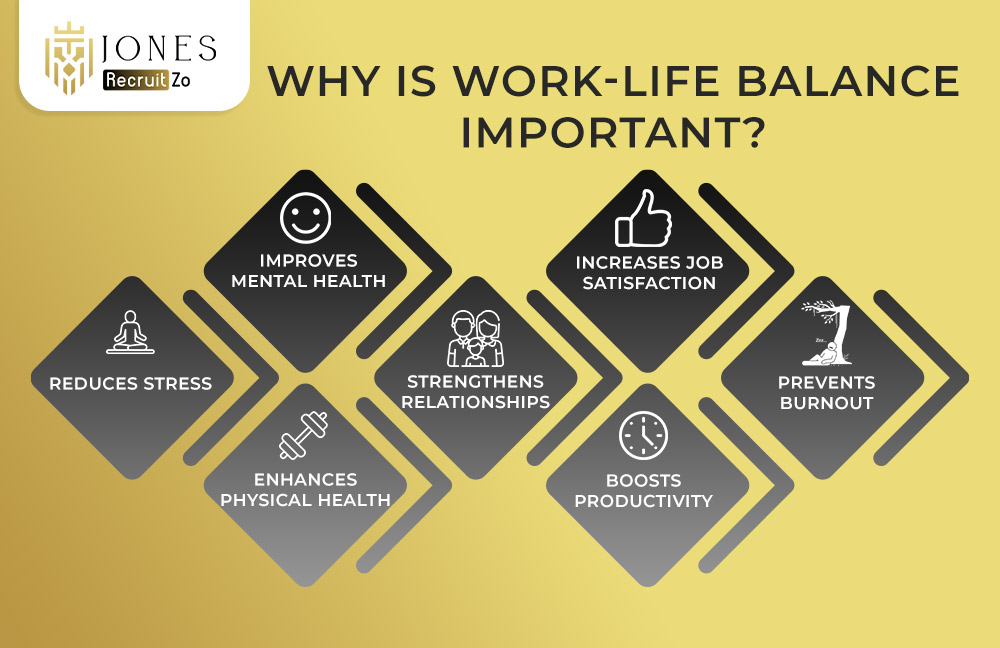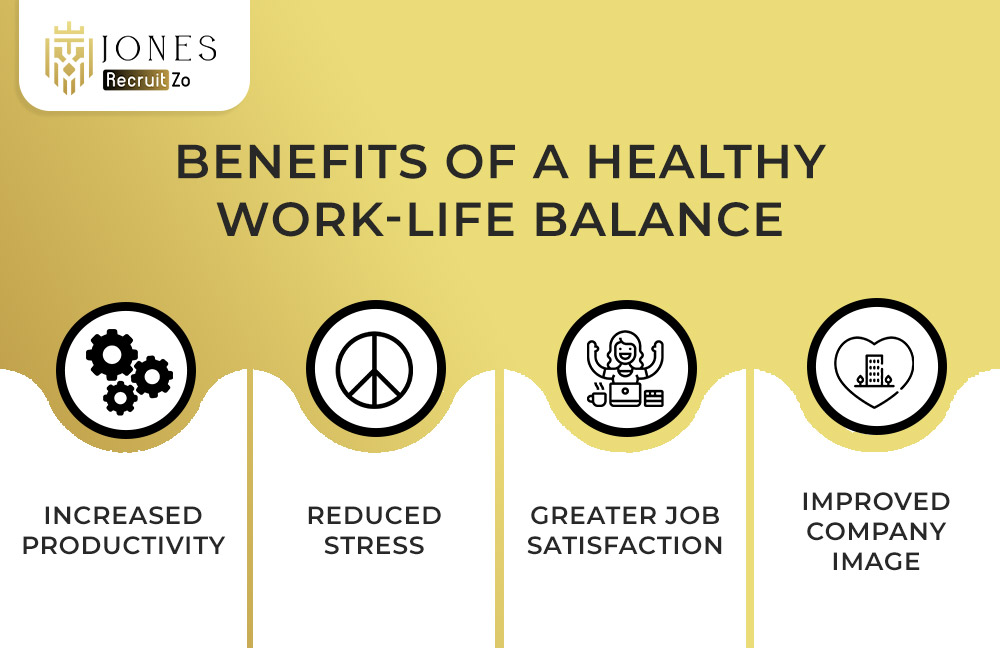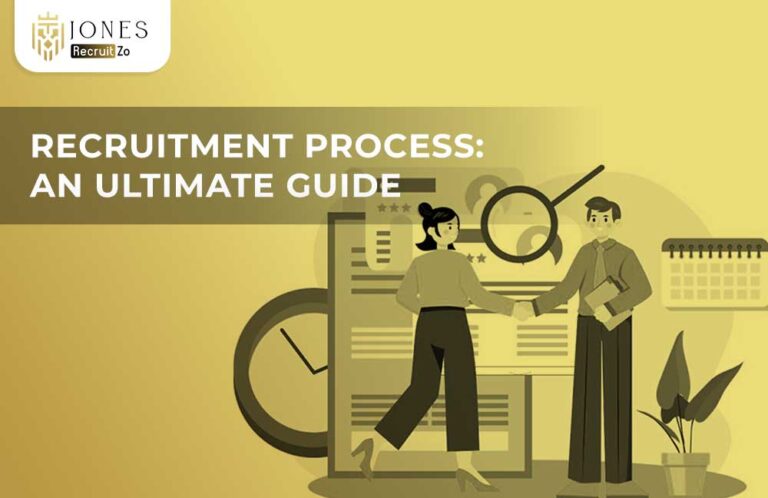What is work-life balance?
Work and personal life balance refers to the ideal distribution of time and energy between work-related responsibilities and personal life activities, such as family, hobbies, health, and relaxation. It is a never-ending process in which an individual seeks to meet job obligations and fulfill personal aspirations without one overtaking the other. Careful planning and management of work-related and non-work activities are essential to a person’s healthy, well-rounded existence.
In other words, it is of great importance to any individual seeking personal fulfillment that the expectations of work should not encroach into their leisure time and the leisure time should also not include any work.The issue of work-life balance has gained utmost importance in recent years.
The emergence of epoques of modern communications through mobile or irritable telephones plus electronic mail have in a way created an environment where the boundaries of work and home life are inseparable making it difficult for most people to draw a clear line and hence quite a number of people ‘burnout’ at work. Work and personal life balance is not a universal remedy. Individual needs, responsibilities, and aspirations vary from one person to another.
While some of them may wish to take a break, other may be more productive whilst working. This piece discusses the impact, causes, and measures of work-life imbalance, work-life balance, and the advantages of work-life balance. Employers’ strategies to help employees maintain work-life balance are also covered.
What is an unhealthy work-life balance?
An unhealthy work and personal life balance is a situation where work obligations take precedence over personal well-being or vice versa. It becomes a problem when what should be a fair balance tips unavoidably in favor of work such that personal relationships, health, and even happiness are compromised.
On the other hand, should all the personal affairs take over the job entirely and there is total neglect of work duties, this too is a disturbing imbalance likely to hinder career development. Working long hours with little or no rest or personal time, or spending a lot of time relaxing and not attending to work obligations are two extremes that exemplify an unbalance.
Signs of an unbalanced work-life dynamic
There are several signs that may indicate an individual is struggling with work and personal life balance:
-
Chronic Stress
Chronic stress is usually linked to prolonged occupational exposure to excessive work. It is generally psycho neurotic and can manifest with anxiety, irritability and an inability to focus. As the pressures of work increase, they often intrude or fail to be confined within physical territorial limits; a person may find it difficult to switch off or engage in things which do not concern work. If chronic stress is not addressed in due course, it can be detrimental to one’s overall health with conditions such as hypertension, cardiac diseases and mental illness depression being some of the symptoms.
-
Burnout
Burnout is a psychological syndrome that des¬cribes protracted physical, emotional and mental ‘wear and tear’ that excessive work-related in this case stress. It usually comes after working longer hours and days without sustaining any rests or day-offs. The main symptoms of burnout include feeling distanced from work scope, being un-energetic, and having a feeling of inundation. Burnout is known to have serious implications such as the drop in the work performance sick, feeling of ‘nothing’ and loss of interest in belonging and any other activities outside work.
-
Lack of Personal Time
In cases where work obligations become overwhelming, there is very little time available for personal activities which aid in mental and emotional balance such as being with family, engaging in interests, or resting. Regular unavailability of such personal time makes one a resentful and isolated or stressed being. Non-occupational engagement is essential for squaring the circle, making social connections and having a tangent to work. If the work culture promotes the neglect of personal time, individuals become restless or become aliens to their own lives.
-
Decreased Productivity
As paradoxical as it may seem, there is a dip in output where an individual works too much without taking personal time in between or resting. Changing this practice leads to overwork which results in exhaustion both mentally and physically. This causes deterioration in cognitive abilities, imagination, and concentration. When people are worn out, they are prone to mistakes and indecision, and more often than not, they cannot carry out their duties to the required standards. It is important to have sufficient personal time and breaks to avoid working on the same project for an extended period to increase productivity over time. Thereafter, work takes a toll on the body and mind and thus becomes less productive, whereas the output per unit of time becomes more.
-
Poor Physical Health
The consequences of an overemphasis of ‘work over family’ on physical health can be immense. For instance, when individuals devote most of their time to work then the cares of seeking personal well-being may as well be not entertaining. The individuals will not find time to work out well, to eat good food and to even have enough sleeping hours. Failure to take care of oneself leads in turn to chronic diseases that include but not limited to obesity, heart-related problems, compromised body defenses and insomnia. Sedentary lifestyles leads to conditions such as diabetes, high blood pressure and joint and muscle disorders. In cases where the focus on work is at the expense of bodily welfare, the repercussions are after a while impossible to brush aside and hence both occupational and domestic spheres start deteriorating.
-
Tension in Relationships
When there is a persistent imposition of work demands on the individual’s time, they tend to experience conflict with relatives, friends and even romantic partners. Working longer hours coupled with anxiety and exhaustion may bring about anger issues, showing less or no communication and avoidance. This in turn may cause a lot of disturbance in the personal relationships and most of the time the person may end up feeling ignored, angry or even left out. Partners or family members may become disconnected with each other, which can lead to disputes or misunderstanding. Such damaging relationships become detrimental to health with the consequence that one begins to avoid relationships and seek seclusion. This obliterating pattern further hinders the ability to balance work and home life.
-
Disengagement
Disengagement is described as a loss of the interest or emotional attachment towards work and even personal life. Prolonged stress or burnout can make particularly busy individuals feel a gap between their work and personal lives. This gap can take the form of an aversion to work-related activities, personal pursuits, or even relationships with people. Disengagement, in most cases, occurs after a long period of emotional fatigue in which an individual is too tired to care anymore about their duties and the people around them. In a workplace setting, disengaged employees have been known to suffer from low productivity, lack of creativity, and dilly-dallying with assigned tasks. Disengagement on a personal level may result in a sense of void since one’s existence turns into performance of compulsory chore instead of pleasurable activities.
Why is work-life balance important?

Making a deliberate effort to create appropriate boundaries between work and personal life balance is important for an individual’s growth and well-being as the two aspects are interconnected. Women and men that can find such a balance between their personal and working lives do not only perform better at their jobs but also enjoy and live healthy lives. An appropriate balance contributes to one’s mental and physical wellness, negatively resolving the over-emphasis on work-related endeavors which may lead to stress-associated disorders such as anxiety, depression, and burnout.
It helps prevent laziness or distraction enabling people to be work-oriented which increases productivity and efficiency at work and therefore goes a long way in achieving career goals. Moreover, it should be noted that practicing a balanced lifestyle promotes improved health because it incorporates physical activities, healthy eating, and sufficient sleep. This inclusiveness benefits enhancing the quality of living as it permits individuals free time to socialize, indulge in activities they love or take care of themselves .
Such integration of the private sphere and the working sphere ensures that an individual is more content with the employment position he or she occupies and the life that is lived outside work. The individuals who are able to achieve a prudential balance between work and home life in general stand more chances of being active, inspired, and ready to cope with both home and work challenges, hence bringing the spiral of positive achievement and happiness.
How can you improve work-life balance
Look for understanding, maintenance, and a conscious desire to achieve the equilibrium between the work and personal life. This can be particularly challenging, especially if the furnishings have demanding jobs but several pointers exist to help achieve balance.
-
Prioritize Self Care
Self-care is, quite simply, the prerequisite for the proper work and personal life balance. Self-care is the process of stepping back, taking a breather and thus preparing oneself to meet personal and work-related challenges. Some examples of self-care include physical activity such as gym going, eating well and snoozing enough, as well as pursuing interests that are fun and relaxing.
-
Manage your time
Proper management of time is one less reason why people should not live a balanced life. Knowing how to structure one’s day to fit in work activities and time for leisure makes it possible to live in an environment where there is a clear distention between work and personal life. Carrying a calendar planner has become common for most, where all the professional activities or appointments like meetings and deadlines are also plotted together with personal activities like workouts, meals, or even family time. There are some expectations and/or limits and it is important to know how to refuse additional assignments that may create an unwanted burden on your schedule to the extent of eliminating your leisure time.
-
Make Schedule Flexible
The tendency to observe a strict timetable is a recipe for one’s psyche to be stressed, especially when events go out of control. Allowing some degree of variation makes it easy for people to cope with the unexpected. For instance, if some work is scheduled for an earlier completion date, one might have to adjust some engagements temporarily.
-
Schedule Social Time
Every human being has to deal with other individuals at some point. This leads to forming connections which must be sustained with age, through friends, family, and even workmates. Socializing with family members helps in relieving anxiety as well as helping out emotionally. Mother Nature designed days as units of time, so plan and select activities such as family dinners, meeting a friend, or community activities to be done on specific days of the week.
-
Add Exercise to your routine
Engaging in physical exercise is a crucial element of achieving a healthy work-life equilibrium. Exercise improves one’s mood and reduces stress, making them more efficient in their work. Frequent exercises including morning walk, yoga or gym workouts shall bring about an improvement in someone’s mental and physical capabilities. Exercise is beneficial in relieving physical and mental fatigue associated with work and other normal day activities.
Benefits of a healthy work-life balance

Striking a proper balance between work and personal life comes with plenty of benefits, not only to individuals but also the organizations they work in. The aspects are so many, both in terms of the person and for the organization he or she is in.
-
Increased Productivity
When people are able to strike this balance, they are usually more productive in their work. Work and life balance minimizes stress which enhances focus, drive, and imagination of the individual. Since work allows for some downtime, overworking does not bring about an improvement in performance standards.
-
Reduced Stress
Maintaining work and personal life balance cut down levels of stress. People’s capacity in dealing with the pressures of work and home is increased when work does not encroach into their time. This is done by taking care of oneself, relaxation, and finding time out for personal pursuits to eliminate excessive stress and the illnesses that come with it.
-
Greater Job Satisfaction
A healthy work and personal life balance translates to high levels of job satisfaction for the employees. It comes from successfully fulfilling job goals and personal goals without getting swamped. Such balance raises the spirits and motivation of employees with regard to their job, enabling them to have a favorable attitude towards their work and career.
-
Improved company image
Organizations that encourage work-life balance help build a positive organizational culture. They lure quality talents in their quest for employment who are flexible enough and seek work and personal life balance. in addition, the balance leads to fewer days off, lower turnover and more efficiency of the workforce, which in turn enhances the reputation of the organization.
How does a flexible workplace help you achieve work-life balance
Work-life balance is enhanced by certain flexible work practices such as telecommuting, flexible hours and weeks, and compressed workweeks. In a flexible workplace, workers are able to reschedule their work time around personal issues so that there is less tension caused by the pressure to deliver on both work and family fronts.
Employees with flexible work options are in a position to balance their working stress level by managing their time effectively, which involves, for instance, taking a break whenever necessary, handling personal obligations on family or personal care without necessarily compromising their work output, and so on.
Finding work-life balance while working remotely
Working remotely provides an exceptional option for everyone in that it helps quite a number of people to attain a better working – personal life balance, is quite popular due to the fact that there is often more flexibility and no commutes. To some, however, such flexibility could also present some challenges, in particular, the inclination of intertwining working life and home life.
In the absence of an office, there is a tendency for leisurely activities to take the place of work or for the work to keep extending even into slack hours of the day. Resilience this situation calls for conscious efforts in setting limits and procuring activities that distinguish working from private hours. The other significant and productive way to cope with the two worlds of work and home while telecommuting is observing boundaries between the two worlds.
This entails categorically indicating work time observe beaks after specified periods of work and most importantly preventing work taking place during one’s free time. In addition to that, having a separate area where one only engages in work related activities enhances the chances of compartmentalizing home life and work life because such an area is strictly reserved for work.
Informing family members or roommates about focus periods may also be helpful in reducing distractions and cutoffs where possible. Through such practices and measures, people who telecommute are empowered in time management and ensuring a work personal life balance is achieved which in turn enables them to work efficiently without compromising their health.
5 ways Employers to Encourage Employee Work-Life Balance
Encouraging a work and life balance among employees is crucial for enhancing their morale, increasing their productivity, and recommending job satisfaction overall. Following these are some effective five ways that employers can help their employees to achieve this balance:
-
Flexible Work Arrangements
Presenting employees with flexible work options such as the ability to work from home, working on a particular schedule at their own time, or even Weeks off from weekends, allows them to combine work with other personal matters. The flexibility allows the employees to allocate time for family, personal chores, or simply relaxing which helps disband all work pressure while still being active at work. Flexible work relationships allow the employees to take charge and conquer without the constraints of a fixed work standard.
-
Prioritize Productivity Over Hours Worked
Focusing on outcomes rather than hours worked is an impactful approach to encourage work and personal life balance. Instead of expecting employees to put in long hours at work, concentrating on the productivity and quality of work done, rather than the amount taken presses the employer and the organization. This shift in focus allows employees to work with time management principles, achieving their work responsibilities and creating time for other personal engagements.
-
Encourage Employees To Take Breaks
Advocating for consistent breaks is essential in ensuring a corded work approach. Workplaces can support attitudes of members, in which the individuals survive work pressure but occasionally have breaks to clear their minds, manage better focus, or release tension. Providing areas for quiet time, providing break time reminders, or even incorporating breaks into the flow of the day by including lunch is good for both the mind and the body. Taking breaks periodically helps in overcoming stress, boosts productivity and facilitates better work and personal life balance.
-
Provide Family Support
The family assistances such as parental, child care, and flexible working hours for family matters have a big impact in maintaining a healthy work and personal life balance. In countries where employers recognize family responsibilities and work and personal life balance principles, inclusiveness and support is practiced a great deal. This support network is critical especially for parents in employment who have to manage household duties – and this often comes with difficulties. By addressing family issues, employers will in turn eliminate the stress that employees are feeling thus making them more productive and concentrated on work.
-
Encourage Physical Activity
Promoting active engagement in exercises is equally one of the good practices for improving the work and personal life balance. This can be achieved by providing gym memberships to employees, having exercise areas in the premises, offering gym and health programs, or simply encouraging them to take breaks outdoors. Physical exercise has been shown to relieve stress, boost energy levels, and enhance mental and even physical health. Typical workers who exercise regularly are usually healthier, calmer, more productive and less likely to experience burnout, which promotes a better disregard for work and personal lives.
FAQs
1. What does balancing work and personal life mean?
Balancing work and personal life means managing your time and energy to ensure both your professional and personal responsibilities are addressed. It’s about creating space for both work and personal activities without one overshadowing the other. This balance helps you stay productive at work while also nurturing your well-being and relationships outside of work.
2. Why is balance important in work and life?
Balance is important because it helps prevent burnout, reduces stress, and ensures that neither work nor personal life is neglected. When both areas are in harmony, you can maintain better mental and physical health. It also leads to greater job satisfaction and stronger personal relationships.
3. How Employers Can Encourage Employee Work-Life Balance?
Employers can support work and personal life balance by offering flexible work options, prioritizing productivity over hours, and encouraging regular breaks. Providing family support and promoting wellness activities further help employees manage both personal well-being and work effectively.
4. What are the benefits of maintaining a work-life balance?
Maintaining a work-life balance improves mental health, reduces stress, and enhances overall well-being. It allows for better physical health through exercise and rest and strengthens personal relationships by providing quality time for family and friends. Additionally, employees with balance are generally more engaged at work, leading to higher job satisfaction and productivity.







